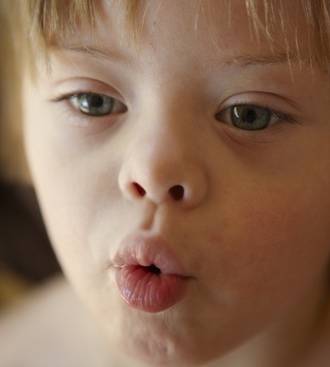Shop
01932
https://www.under5s.co.nz/shop/Hot+Topics+Articles/Health+%26+Wellbeing/Toddlers/Childhood+apraxia+of+speech.html
Childhood apraxia of speech
|
Does your child have childhood apraxia of speech? Find out more about this muscle disorder, the main characteristics of apraxia of speech and how it can be treated.
|
You might also be interested in ...
Nightmares vs night terrors in preschoolers
Night waking in preschoolers is not uncommon and can sometimes be caused by nightmares or night terrors. But how do you know the difference between a nightmare and a night terror? Gaining an understanding of them both is key to determining the best way to handle them. We look at nightmares and night terrors in more detail and give you some tips on how to combat the possible underlying causes and help stop your preschooler’s episodes.
Keeping kids safe around water
Water play can be a great source of fun and exercise for the whole family, but it can also be dangerous for kids if the proper water safety precautions are not taken. The good news is though there are many ways to keep children safe in and around water. Check out these helpful tips.
join usJoin us on social media for all our latest news. |
sign upSign up and receive our latest newsletters. |
|







Find out more about this muscle disorder, the main characteristics of apraxia of speech and how it can be treated.
What is childhood apraxia of speech?
Childhood apraxia of speech is a muscle disorder that makes it difficult for children to produce sounds, syllables, and words.
The muscles of their mouth are not actually weak; rather their brain cannot properly coordinate muscle movements.
Their brain knows what it wants to say but has a hard time telling their lips, tongue and jaw how to move the right way to produce speech sounds correctly.
Childhood apraxia of speech is usually present from birth and it seems to affect boys more than girls. However, it is not fully known what causes childhood apraxia.
Some researchers believe it’s related to a child’s overall language development while others believe it’s a neurological disorder that affects the brain’s ability to send the proper signals to move the muscles involved in speech.
Children with childhood apraxia of speech often have family members who have a history of communication disorders or learning disabilities which tends to suggest that genetic factors may play a role in the disorder.
There is no single factor or test that can be used to diagnose apraxia. Medical specialists generally look for the presence of some of the main characteristics listed below, ruling out other contributing factors, such as muscle weakness or language-comprehension problems.
Testing and monitoring usually takes place over some time.
Characteristics of apraxia of speech
Some of the distinguishing characteristics of childhood apraxia of speech may include:
Treating childhood apraxia of speech
Treatment for childhood apraxia of speech usually involves intensive speech therapy, often 3-5 times a week initially.
Therapy sessions usually target improved coordination of their muscle movements through lots and lots of repetition and attempting to say syllables, words and phrases.
A speech therapist will usually work with your little one to help shape their muscle movements into clearer speech.
Practice at home is very important. Parents will often be given assignments to help their little one progress and allow them to use new strategies outside of the treatment room.
With time and hard work, many children with apraxia can eventually become competent speakers.
If you think your child may have childhood apraxia of speech, contact your GP or medical practioner to discuss your concerns further and ask for a referral.
Like the article you've just been reading? Click on the Refer A Friend link at the top of the page and send the details to friends who might like to read it too.Tell your friends
More Hot Topics for you to enjoy
- Speech development in preschool children
- Baby signing
- First sentences
Image source: speechbuddy.com